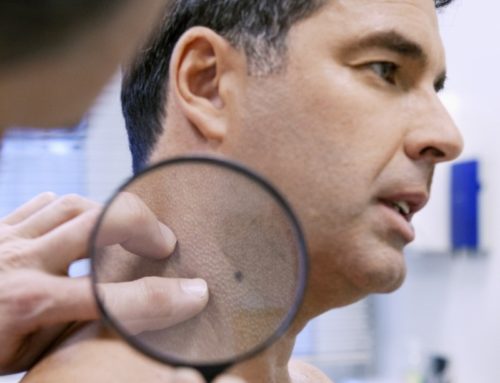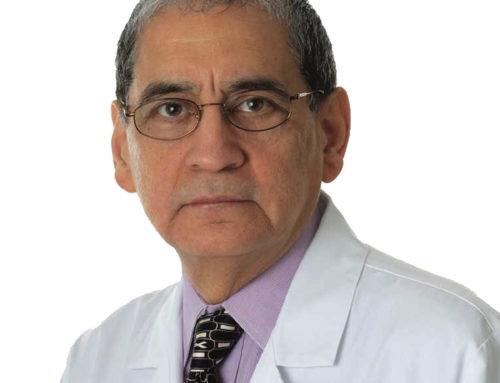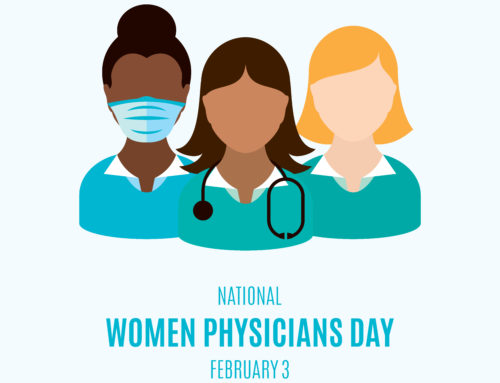November is an important month for University Surgical Associates, as we work to raise awareness of health conditions that can have a significant impact on quality of life. Two of these conditions in the spotlight this month are diabetes (American Diabetes Month) and gastroesophageal reflux disease (GERD Awareness Week from November 21-27).
To shed light on these conditions and their treatment options, we asked general and endocrine surgeon Dr. Heath Giles to share his expert perspective on how USA surgeons are helping patients prevent and overcome these common health issues.
Q: HOW ARE USA SURGEONS HELPING PATIENTS WHO MAY BE AT RISK FOR DIABETES?
A: Diabetes is a serious condition that raises your risk for several health issues, including cardiovascular disease, foot and limb injuries and serious COVID-19. This chronic disease can be caused by multiple factors, and one of the lesser-known causes are adrenal tumors.
The adrenal glands are found above each kidney. They are triangle-shaped, and measure about half an inch in height and 3 inches in length. The adrenal glands are complex organs that keep the body in balance by making cortisol and other hormones that are critical for maintaining good health.
It is common for benign (non-cancerous) tumors to develop in the adrenal gland. Up to 20% of adrenal tumors make excess hormones, and one such hormone is cortisol. This can lead to a condition known as Cushing’s Syndrome (CS), which can significantly reduce a patient’s overall wellbeing and life expectancy. CS and diabetes are closely linked as it is estimated that up to 50% of patients with CS have varying degrees of altered glucose metabolism.

At USA, our endocrine surgeons have significant experience with procedures to address adrenal tumors. When they are discovered on imaging modalities, successful treatment requires a high level of expertise in diagnosis and management of these tumors.
Our surgeons have completed additional training at Harvard and The Mayo Clinic to address tumors of the adrenal gland and help patients avoid life-threatening issues like diabetes. If you or someone you love has a rare condition like adrenal tumors, you want a surgeon with this level of experience.
Q: HOW IS GERD DIAGNOSED, AND WHAT ARE USA SURGEONS DOING TO HELP PATIENTS FIND RELIEF?
A: It’s estimated that 20 percent of Americans have gastroesophageal reflux disease (GERD). While most can manage their discomfort with lifestyle changes and over-the-counter medications, others will need a treatment plan that could include surgery to ease the symptoms.
To determine the most effective course of treatment requires extensive testing. If reflux can’t be treated medically and it’s determined that surgery is the best option, it’s important to turn to a surgeon who specializes in reflux. There are multiple surgical options to treat GERD, and our surgeons are highly trained to address this condition in a variety of ways — including minimally invasive options for quicker recovery. This includes hiatal hernia repair, fundoplication and an innovative new procedure that combines hiatal hernia repair and endoscopic fundoplication called cTIF.
Again, our surgeons have completed specialized training and have years of experience with these procedures. For example, in the last five years alone our Hernia Center surgeons have helped more than 5,000 patients get back to work and the activities they enjoy.
About Dr. Heath Giles

Dr. Giles specializes in general and endocrinology surgery. He received his medical degree from the University of Tennessee Health Sciences Center, followed by additional training as an intern/resident in general surgery at the University of Tennessee. He also completed a fellowship in endocrine surgery from Brigham and Women’s Hospital, a major teaching hospital of Harvard Medical School. In addition to his surgery practice, Dr. Giles is an associate professor of surgery in the Department of Surgery, and General Surgery Residency Program Director for the University of Tennessee College of Medicine, Chattanooga. He joined University Surgical Associates in August 2012. Learn more about Dr. Giles.






Leave A Comment